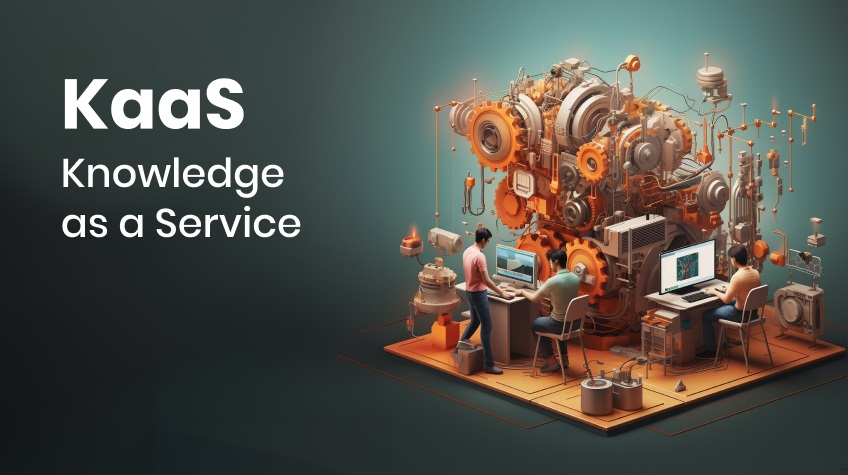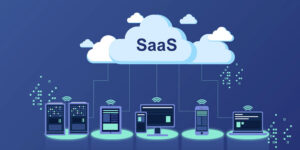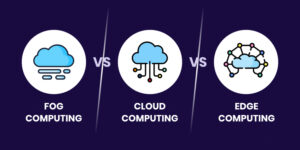
Each business faces obstacles when it comes to efficiently contextualizing knowledge and strategic solutions. However, Knowledge as a Service, popularly known as KaaS, comes in handy in such a situation. With Knowledge as a Service (KaaS), diverse industries get the best information based on context-aware computing. They are able to respond more quickly and intelligently to a wide range of complex situations or opportunities.
If you want to know how KaaS can help businesses respond faster and smarter to various complicated circumstances or opportunities, read this post. This post talks about Knowledge as a Service in detail. Let’s delve into the following paragraphs to understand KaaS’ meaning, benefits, and functioning. Let’s get started…
Table of Contents
- What is Knowledge as a Service?
- Benefits of Knowledge as a Service
- Easy-to-Access Knowledge
- Experts Solution
- Contextual Information
- On-time Processing of Large amounts of Data
- Improved Team Collaboration
- Easy to Understand information
- More Focus on Insights
- Helps in Agile Decision Making
- Highly Scalable
- Risk Assessment
- Data Security and Privacy
- Quality Results
- Saves Time and Energy
- Cost Effective Solution
- How does KaaS work?
What is Knowledge as a Service?
Knowledge as a Service (KaaS) is a cloud-operated platform. It provides businesses with real-time data or insights to accelerate productivity. It includes a research database, market reports, competitive advantage forecasts, and expert opinions/recommendations. Also, it avoids enormous datasets, that may otherwise make organizations feel overwhelmed. Overall, KaaS only provides data and contextual information that truly makes sense.
As a result, stakeholders and management can take advantage of the knowledge they need to boost their performance. They can make informed decisions, which is essential for their organizations’ growth. The best thing about KaaS is that it does not require investment in experts, multiple software, or IT infrastructure to access knowledge or data.
Most importantly, KaaS is accessible through API, web portals, and other integration methods at cost-effective prices. And yes, its integration with AR (Augmented Reality) and VR (Virtual Reality) enhances employees learning experience and performance. Let’s now take a look at the vast benefits that Knowledge as a Service offers. Here we go…
Benefits of Knowledge as a Service
Knowledge as a Service (KaaS) offers several advantages to businesses across industries. It offers a robust platform to help businesses make well-informed decisions. With KaaS, businesses are able to build innovative strategies and transform their operations. Some of the benefits of Knowledge as a Service are as follows:
1. Easy-to-Access Knowledge
The Knowledge as a Service (KaaS) ensures that individuals or organizations can access databases, research, and expert guidance. It eases the complexity of machine learning algorithms and provides contextually precise, relevant, and timely insights.
2. Experts Solution
KaaS enables business organizations to access expert solutions to streamline problems or functions. This is the most crucial advantage of KaaS as a solution. It offers unique and innovative solutions to boost year-to-year revenue. This way, it significantly helps businesses to gain a competitive edge and improves their decision-making powers.
3. Contextual Information
Another advantage of KaaS is that it understands external or internal circumstances and challenges of a business organization. Based on its understanding of challenges and circumstances, it provides users with contextual information or data aligned with the situational analysis. As a result of this, businesses can address their operational challenges and opportunities uniquely.
4. On-time Processing of Large amounts of Data
More often than not, businesses find it difficult to have structured data. Yes, very often, data is available in an unstructured format. In such a situation, KaaS comes in handy. It provides relevant and on-time contextual data to the businesses. The best part is that it processes a large volume of unusable data to make it meaningful. This helps business organizations stay ahead of the curve.
5. Improved Team Collaboration
With a blend of innovative technology and strategic approach, KaaS improves real-time team collaboration. Simply put, it ensures seamless collaboration between experts and in-house team members regardless of geographical boundaries and time frames.
6. Easy to Understand information
Information that is easy to understand helps organizations tremendously. KaaS comes to the rescue here. It breaks down complex concepts and simplifies them into easy-to-understand information. As a result of this, organizations and individuals can make quick and efficient informed decisions.
7. More Focus on Insights
Knowledge as a Service primarily focuses on delivering analysis-based insights rather than just providing unstructured or enormous information. And the best part is that no additional data processing is required post its results.
8. Helps in Agile Decision Making
Contextualized knowledge provided by KaaS helps businesses to make well-informed decisions, more quickly. They can take advantage of competitive opportunities and tackle challenges smartly.
9. Highly Scalable
Scalability or adaptability is the key advantage of Knowledge as a Service. It evolves with business organizations’ changing demands, allowing them to meet the unique demands of different industries while continuously learning and improving from new data inputs. Its adaptability features, a high responsiveness to deliver high-quality personalized results sets it apart.
10. Risk Assessment
Backed by experts, Knowledge as a Service assesses the risk factors of an organization. This enables organizations to identify the potential risks and mitigate them in a timely fashion. As a result, they can build effective proactive strategies to overcome the system’s vulnerabilities. This, in turn, reduces the likelihood of risks happening.
11. Data Security and Privacy
In addition, Knowledge as a Service (KaaS) guarantees the preservation of the original data without any interruptions, alterations, or damage. It efficiently ensures data security and privacy to safeguard business organizations’ or individuals’ sensitive information.
12. Quality Results
KaaS (Knowledge as a Service) ensures quality outcomes. It leverages advanced AI and machine learning algorithms to process and analyze vast amounts of data to provide real-time, actionable insights tailored to specific user needs. This ensures accuracy and relevance.
13. Saves Time and Energy
Without a doubt, the KaaS software solution is designed to save the time and effort of a business organization. Organizations find it handy when it comes to handling complicated research and analysis. This solution is highly effective in providing businesses with faster, more insightful solutions. This way, it constantly provides new information backed by experts.
14. Cost Effective Solution
Last but not least, Knowledge as a Service (KaaS) is one of the most cost-effective solutions out there. Yes, this cloud-based solution does not let you invest in experts or expensive software solutions. Most importantly, organizations can access this platform on a subscription basis or pay-per-use. With an affordable option, businesses can multiply their productivity and generate increased revenue.
You must be eager to know how this solution works. Well, no more wait! We are sharing KaaS’ working in the upcoming section. Take a look…
How does KaaS work?
Simply expressed, Knowledge as a Service (KaaS) functions with a blend of advanced technologies and human expertise. It enables contextual insights into industry reports, databases, competitors’ strategies, professional advice, and strategies. This way, it aids C-suites, management teams, and employees in making swift decisions that align with challenges and opportunities. Powered by expert guidance and modern integrated systems, it equips industries with personalized insights.
Most importantly, the modern KaaS is different from traditional data services. It functions with AI (Artificial Intelligence) and machine learning algorithms to let industries leverage knowledge. Its integrated NLP (Natural Language Processing) eliminates communication gaps and allows the system to understand or generate information in human language. Furthermore, data integration and analytics play a vital role in its functioning. They ensure accurate and precise data analysis.
Putting it all together…
So, this is all about Knowledge as a Service (KaaS). Hopefully, this article has been informative for you and help you leverage the power of this cloud-based solution efficiently. Know that every business is unique and bears its own set of strategic needs and preferences. By offering real-time, tailored insights through advanced AI and machine learning, KaaS enables businesses to make informed decisions quickly and efficiently. Its scalability and adaptability make it an invaluable tool across various industries. However, it is worth noting that it does not always deliver a standard level of expertise and knowledge. Also, data security protocols should be administered with its usage. All in all, KaaS is a promising solution that enhances the way knowledge is delivered and applied, which makes it a vital component of modern business strategies.






